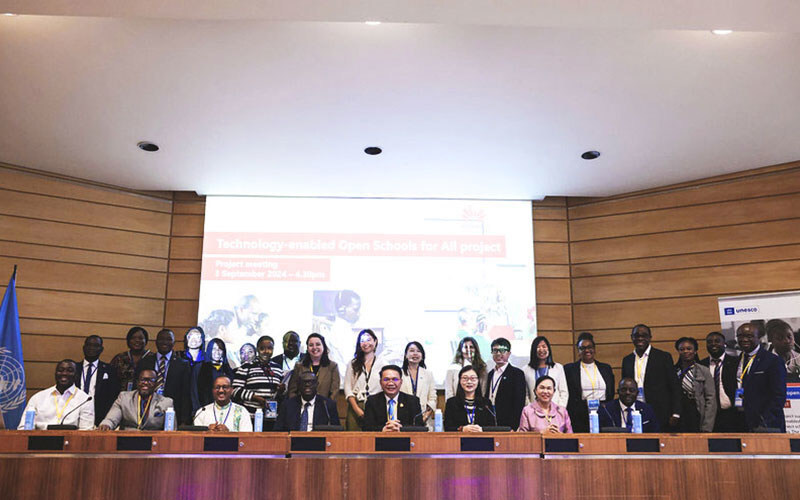Huawei has announced the launch of the implementation phase for the Technology-enabled Open Schools for All Phase II project in Egypt, Brazil, and Thailand during Digital Learning Week, UNESCO’s premier event focused on digital learning and educational transformation.
Running from 2024 to 2027, Phase II of the UNESCO-Huawei collaboration aims to support the digital transformation of education systems in the three countries through innovative digital open school models. These models combine technological advancements with human capabilities to create flexible, inclusive, and high-quality learning environments that integrate both offline and online learning.
Details of Announcement
The project’s implementation follows the initial design stage, which began in April 2024 to assess the specific educational needs and priorities of Egypt, Brazil, and Thailand. The announcement took place at the Technology-enabled Open Schools for All Forum, jointly hosted by UNESCO and Huawei at Digital Learning Week. The forum showcased the achievements and insights gained from Phase I, conducted from 2020 to 2024 in Egypt, Ethiopia, and Ghana. These insights will be used to guide the implementation of Phase II.
Prominent attendees at the forum included H.E. Mr. Mohamed Abdel Latif, Minister of Education and Technical Education for Egypt; H.E. Dr. Yaw Osei Adutwum, Minister of Education for Ghana; along with delegates from the education ministries of Ethiopia, Brazil, and Thailand, as well as representatives from UNESCO and Huawei.
Opportunities for Educators
Advancing Global Education Through Technology
Aligned with Huawei’s TECH4ALL digital inclusion program, the Open School initiative’s technological foundation focuses on improving school connectivity, enhancing teachers’ ICT skills, and creating digital learning resources.
The Open School model is designed to facilitate human-centred digital transformation within the education sector by focusing on connectivity, competence, and content, explained Joyce Liu, Director of the TECH4ALL Program Office at Huawei. Through strategic partnerships and by customizing technology to address the unique needs of each country, we strive to make equitable and inclusive access to lifelong learning a tangible reality for everyone.
Brazil and Thailand Leading the Way
Brazil’s Open School initiative will focus on promoting inclusivity and sustainability in education. In alignment with the country’s Connected Schools Strategy, five smart schools will be developed, two digital training centres will provide ICT training for teachers, and digital courses will facilitate online learning.
In Thailand, the initiative will prioritise well-being in education. Following the country’s 2018-2037 national strategy, ten smart schools will be built, with a focus on expanding smart classroom technology. Teachers will receive training in ICT skills, and digital platforms will deliver new learning resources.
These projects will set benchmarks for educational innovation across the Latin American and ASEAN regions, respectively.
Egypt’s Ongoing Digital Transformation
Progress in Ethiopia and Ghana
Phase I also achieved significant milestones in Ethiopia and Ghana. In Ethiopia, 12,000 students and 250 educators were equipped and trained across 24 pilot schools, and the nation’s first EdTech training manual was developed to support its new Digital Education Strategy (2023-2028).
In Ghana, the project improved national education platforms, developed an ICT Competency Framework for Teachers, and provided ICT equipment to ten schools, benefiting 1,000 teachers and 3,000 students.



